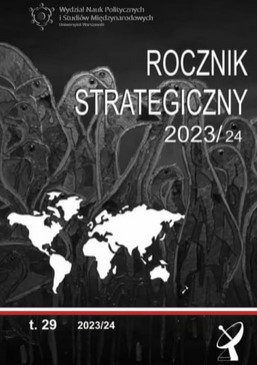Gospodarka światowa 2023–2024: między geoekonomiczną fragmentacją a reglobalizacją?
World economy 2023–2024: Between geoeconomic fragmentation and re-globalization?
Author(s): Karina Jędrzejowska, Anna WróbelSubject(s): Economic policy, International relations/trade, Security and defense, Military policy, Financial Markets, Globalization, Socio-Economic Research, Peace and Conflict Studies, Russian Aggression against Ukraine
Published by: Wydawnictwo Naukowe Scholar Sp. z o.o.
Keywords: World Economy; geoeconomic fragmentation; re-globalization; war in Ukraine; war in Gaza; inflation; sovereign debt; International Monetary Fund; Word Trade Organization; free trade and protectionism;
Summary/Abstract: According to the IMF, after several decades of progressive economic integration, global economy is on the verge of a reverse process of geoeconomic fragmentation. Since the global financial crisis (2007-08), the world economy has been undermined inter alia by Brexit, the U.S.-China trade war, the COVID-19 pandemic and numerous armed conflicts, particularly the wars in Ukraine and Gaza. Simultaneously, over the course of 2023, several multilateral institution voiced opinions that the remedy for international economic turmoil is a return to economic openness – a process referred to as re-globalization. Re-globalization is a concept that focuses on interconnection, cooperation, and trade between countries. It promotes the further integration of global markets and the expansion of global value chains. It can bring a range of benefits to individual countries and their citizens: from accelerating economic growth to improving social and environmental indicators. Looking at the current state of the global economy, taking swift action to improve the situation seems essential. The end of 2023 and the first weeks of 2024 indicate very modest growth prospects. It has also been difficult in the recent months to make progress on the sustainable development agenda. Therefore, subsequent sections of the chapter are devoted, respectively, to the review of major macroeconomic indicators in 2023, development of the world trade, the challenges for governance of the world trading system, condition of international financial markets, reform of international financial institutions, and the situation at the halfway point of the 2030 Agenda.
Journal: Rocznik Strategiczny
- Issue Year: 2024
- Issue No: 29
- Page Range: 169-193
- Page Count: 25
- Language: Polish

